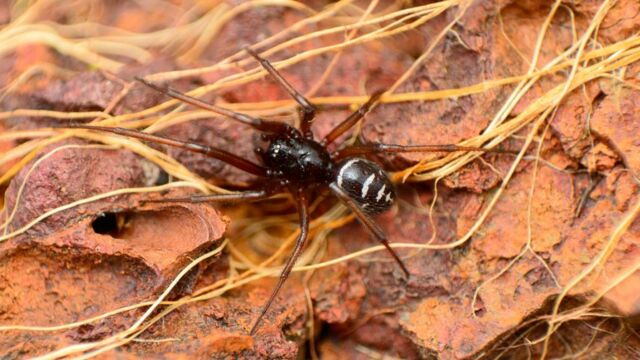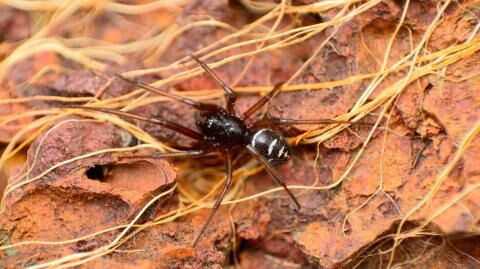In a new study conducted by the University of Ireland Galway, the number at which false widow spiders are reproducing is said to have reached a concerningly high rate for residents of the UK and Ireland.
Discover our latest podcast
An eight legged nuisance
Upon studying the species of arachnids, scientists have also found that their bites are potent enough to hospitalise people—although not nearly as harmful as their more popular cousin the black widow. Be it as it may, these spiders might be even more problematic despite not being as deadly as other venomous species.
After first having been discovered in Britain more than 140 years ago, the Noble False Widow has the potential of becoming one of the world's most invasive species of spiders after a sudden boom in numbers have disproportionally increased its density in recent decades. The study, which was published in the medical journal Clinical Toxicology, explains that:
With the increase in False Widow spiders around homes, bites are becoming more prevalent, and scientists are now beginning to realise the full medical importance of these spiders.
Envenomation symptoms can be both localised and systemic, ranging from mild to debilitating pain and mild to intense swelling. Some victims have experienced tremors, reduced or elevated blood pressure, nausea and impaired mobility.
Adding that:
In rare instances, victims have developed minor wounds at the bite site or had to be treated for severe bacterial infections.
'Severe envenomations'
Lead author of the study and Postdoctoral Researcher at the Venom Systems Lab at NUI Galway, Dr. John Dunbar, said:
Speculations around the potential severity of the bites by the Noble False Widow have been debated for many years. We only compiled envenomation cases where we had a clear identification of the spider responsible for the bite.
And:
We had to rely on DNA extraction and genetic profiling to confirm some cases. We are encouraging people to capture a photograph of the spider immediately after being bitten. Our latest study confirms without a doubt that Noble False Widows can cause severe envenomations.















